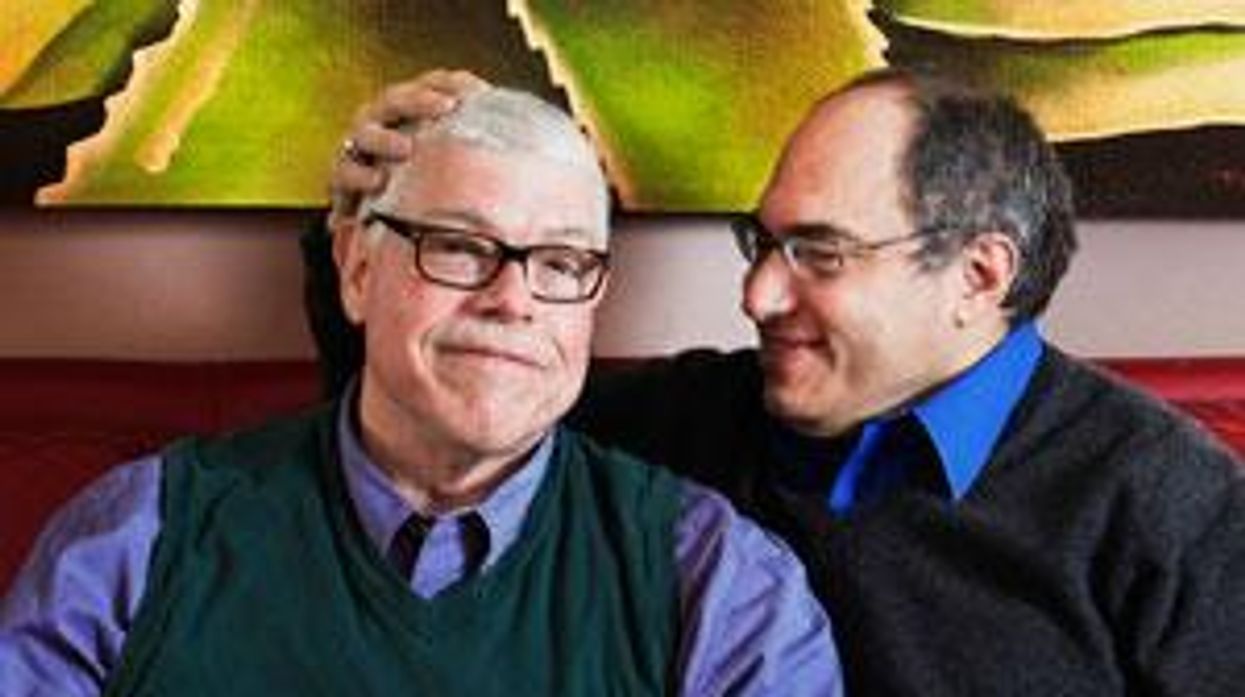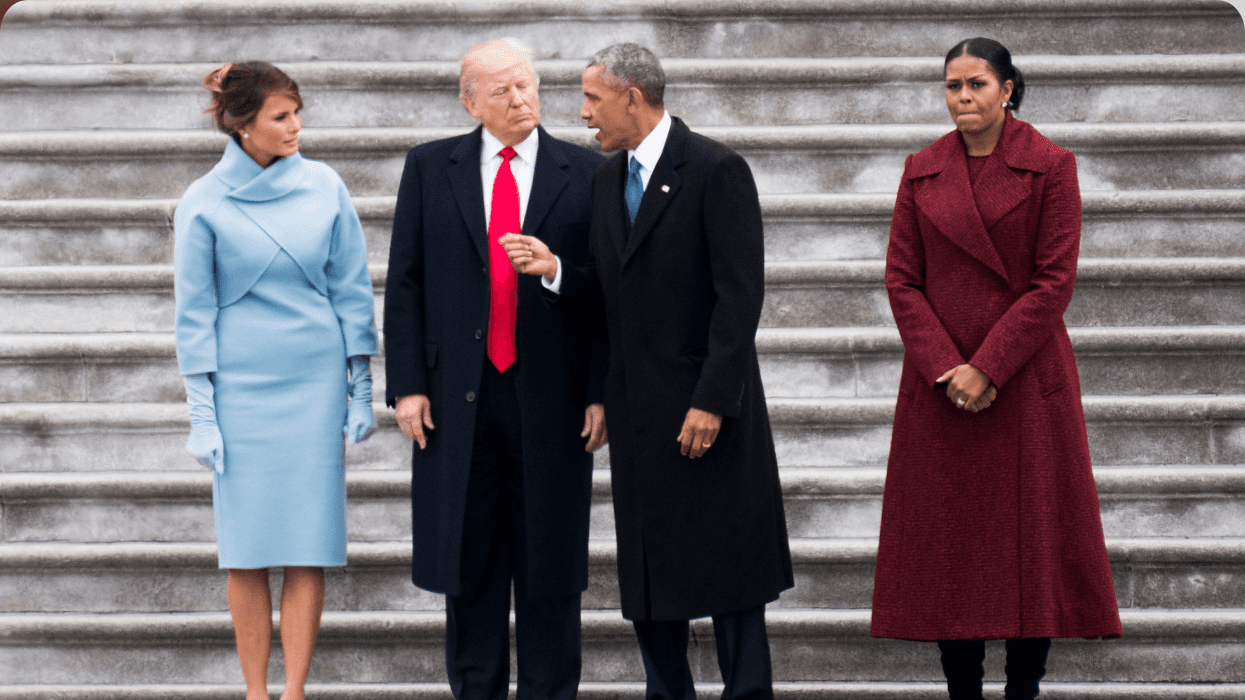Author's note: In 2009, Paul David Wadler and Rick Brown had already been married three times: in Vermont (a civil union), in their Unitarian Church in Chicago (before family and friends), and in Canada (a legal wedding). By April of last year, Iowa had made gay marriage legal, and I wrote a piece in The New York Times about how my interracial parents had once gone to Iowa to wed (their home state, Nebraska, forbade interracial marriage). I wrote how I, as a gay man, could now potentially wed in Iowa, too. Wadler wrote a touching email to me right after the piece was published, saying he and his husband wanted to travel to Iowa to wed again in solidarity with my parents' memory. He also mentioned that, although he and Brown are both white, they have included the African-American 'jumping the broom' tradition in their weddings, a custom developed by slaves who were not allowed to wed. Wadler and Brown did wed in Iowa last summer, will probably wed in Massachusetts this year, received a civil union in Chicago last Friday, and plan to keep getting married in different jurisdictions until marriage is legal everywhere. Wadler and Brown spoke to Out about what they mean to each other and why they keep recommitting themselves in formal ceremonies time after time.
Paul David (PD) Wadler (as told to Out):
I think there's something about men loving each other that's really, really threatening to everything. Our system is all about competition and insecurity and men beating each other up.
When [same-sex] marriages started happening, it seemed like it was mostly women participating. On the Unitarian Church's homepage, the couples were all female. When I asked about it, they said, 'We don't know any male couples.' Men don't have nearly as many role models for this stuff. But I knew there were people keeping count. And so I think it's important that male couples also get licenses and add ourselves to the numbers.
I was kind of ambivalent about marriage before. I thought of it as this patriarchal institution, and there were a lot of advantages of not buying into it. But after our first ceremony, it really had meaning for me. It was really magical.
Each time [we've gotten married], it's really fun. I really like it. Every time we say our vows, they change. It's kind of like I focus on a different part of being married each time. The only thing I can compare it to is when I was in college and I loved the film Harold and Maude. Each time I saw it -- and I saw it a million times -- I'd focus on a different part of the film. That's what it's like getting married all the time. That's what it's like to keep making a commitment over and over again, in a culture where there isn't a lot of commitment anymore.
What does Rick mean to me? I don't know how to answer that. It's like, I'm not here for myself. He means everything to me. I can only think of him like he's a part of my body. It's like thinking, 'What does your leg mean to you?' I can't imagine living without him or being without him. We fit so well together. I'm really -- eccentric? Idiosyncratic? -- and he proves that there's a pot to every lid. He was the guy who was interested in Judy Garland and the Watergate hearings. We're really good together, and in the past few years, we've become much more of a team. And I think that good marriages are like that.
Rick Brown (as told to Out):
Just listening to PD, I think, Isn't he brilliant? He's just amazing.
What does he mean to me? The real easy answer is that he's company, and that's one of our touchstones. One of the earliest things I introduced him to was the musical Company, which is about relationships -- married relationships. And I told him, 'I can't hear this music without thinking about you. It's how I feel.' He's the man that I live with, and it's our day-to-day life that's important. And because he's PD, it's fascinating. There are always interesting things to do, to talk about. I love just listening to him.
We're an old married couple now. I think we've come to a point, after 18 years of just being together, that it's more than a constant kind of feeling of appreciation. What I've always said is that I'd be lost without him. He's always got this macro point of view that's always right. I'm the details person. I can set up a stereo -- that's one way we really fit together. He's terrible at the details. And so I can be of service, I can help. But he's just got this vision, which is great.
I wasn't raised to have my life have meaning. I wasn't raised to accomplish great things. But getting married, it connects me with the times, it connects me with my partner, it connects me with the movement. It's a very satisfying thing.
It's the personal that becomes the connection -- the connection to the ongoing struggle. Being a part of making a difference. Each time we get married, I think it's a snapshot of our relationship. We do have different vows, and we're at different places each time. I think of when we wrote our vows separately, and we'd both written that we hoped our lives would mean something. And for PD, for anyone who knows him, they'd expect that he'd write that. But for me, it's what I've learned from him. It's that same idea of why we're getting married again and again.
To read 23 other love stories we can't get enough of from our February 2011 Love issue, click here.






























I watched the Kid Rock Turning Point USA halftime show so you don't have to
Opinion: "I have no problem with lip syncing, but you'd think the side that hates drag queens so much would have a little more shame about it," writes Ryan Adamczeski.